Empowering Syndications
with Blockchain Technology
A frictionless transition into the tokenization world.

Tokenization
What is it?
The tokenization of properties is a digital representation of an underlying asset, fractionalized, through the creation of tokens, and recorded on a blockchain. It allows individuals to acquire property and share ownership of an asset in a decentralized framework.
Advantages of tokenization
- Unlocks liquidity accommodating a secondary exchange.
- Smart contracts enable the automation of transactions and administrative processes saving time and cutting costs.
- Improves affordability making real estate investing available to the wider population.
- Operating on blockchain enforces immutable transparency and accountability.


Blockchain Mirroring
What is it?
Blockchain Mirroring creates a copy of the syndication's data that resides on the blockchain. That copy becomes the primary operational database if the syndication decides to switch to a tokenized model.
Advantages of Blockchain Mirroring
- It allows on-boarding on our platform without having to switch to a tokenized model.
- Switching from a legacy to a blockchain model is as simple as pressing a button and retroactively brings all the syndication's data onto the blockchain.
- With two identical data sets, the blockchain copy can be used as an audit trail.


Partial Tokenization
What is it?
Ready to tokenize your assets but some of your investors are still hesitant? Partial Tokenization allows for individual shares to be tokenized based on the shareholder's preference.
Advantages of Partial Tokenization
- Syndicators can still benefit from the tokenization model without needing unanimity of votes from investors.
- Skeptics and believers can use their preferred way of holding their shares.
- Soft introduction to the tokenization model for syndicators.
